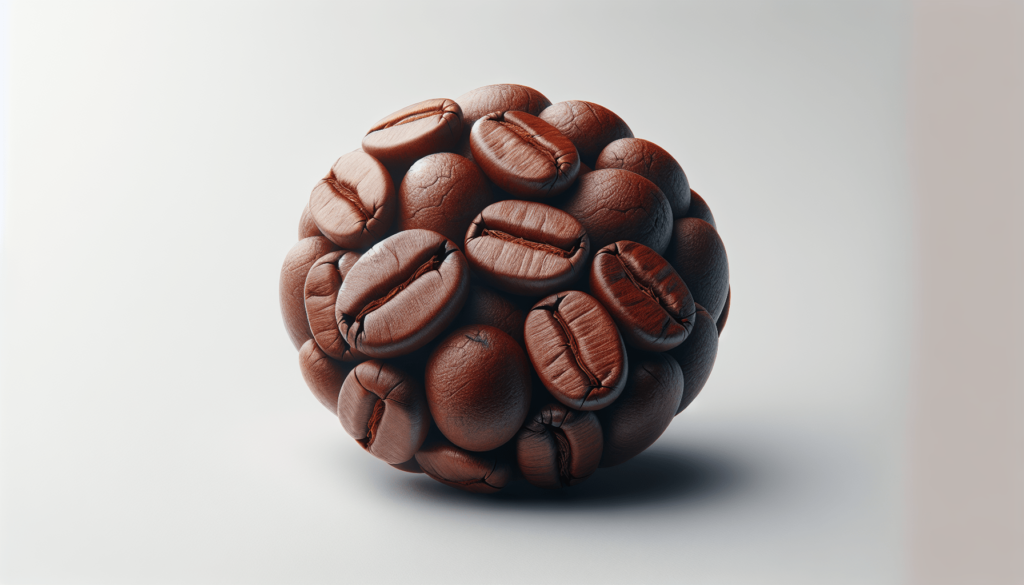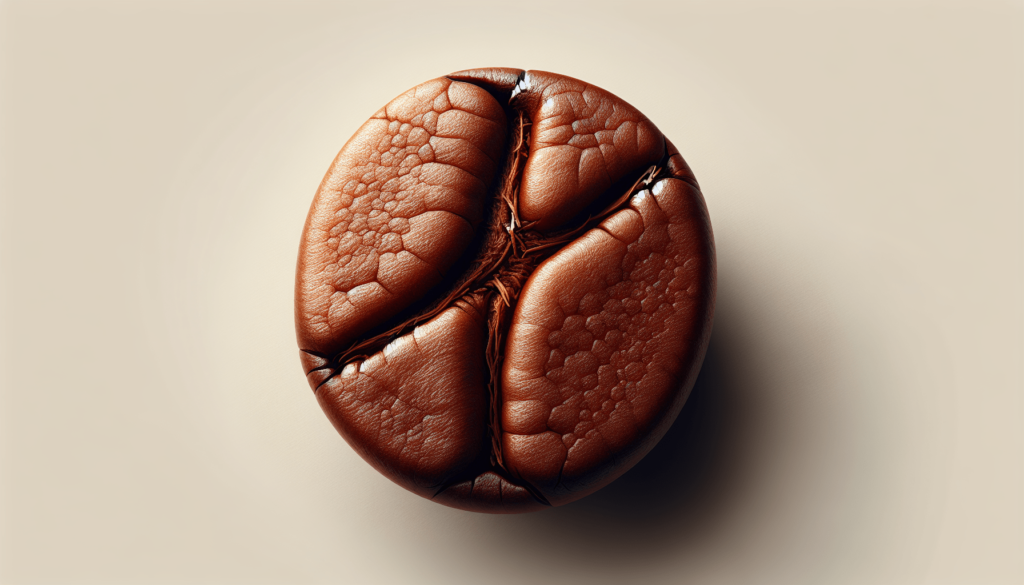Have you ever wondered whether Starbucks uses Arabica or Robusta coffee beans for their flavorful brews? It’s a common curiosity among coffee aficionados, especially considering how integral coffee is to the daily routine of many. Whether you’re grabbing a quick cup before work or settling in at home with your favorite Starbucks blend, knowing the type of coffee beans can enhance your appreciation of that magical cup.
What Are Arabica and Robusta Beans?
Arabica Beans
Arabica coffee beans are commonly considered the superior bean in the world of coffee. Originating from Ethiopia, they account for about 60-70% of global coffee production. Known for their sweet, complex flavor profile, Arabica beans are often more expensive and more plant-care intensive than their Robusta counterparts. The taste can range from soft and sweet to tangy and fruity, offering a nuanced coffee experience.
| Feature | Arabica Beans |
|---|---|
| Origin | Ethiopia |
| Global Production | 60-70% |
| Flavor Profile | Sweet, complex, nuanced |
| Growth Conditions | High altitudes, cool climates |
| Caffeine Content | Lower than Robusta |
Robusta Beans
On the other hand, Robusta beans originate from sub-Saharan Africa. They are hardy plants known for their strong, bold flavors, more bitterness, and higher caffeine content. Often used in espresso blends due to their strong flavor and crema-producing properties, Robusta beans make up about 30-40% of global coffee production. These beans are easier to grow and more resistant to pests, making them cheaper and more readily available.
| Feature | Robusta Beans |
|---|---|
| Origin | Sub-Saharan Africa |
| Global Production | 30-40% |
| Flavor Profile | Strong, bold, bitter |
| Growth Conditions | Low altitudes, warmer climates |
| Caffeine Content | Higher than Arabica |
Does Starbucks Use Arabica Or Robusta Beans?
Starbucks Commitment to Quality
Starbucks is a brand synonymous with high-quality coffee, and their commitment to providing the best possible coffee experience is well-documented. So, what kind of beans do they use?
The Arabica Advantage
Starbucks exclusively uses 100% Arabica beans in their coffee. The company believes that Arabica beans possess more aromatic, intricate flavors, offering a superior coffee experience. Their brewing philosophy strongly favors the nuanced flavors of Arabica beans over the more robust and straightforward flavors of Robusta.
Quality Control Measures
Starbucks sources their Arabica beans from various regions, including Latin America, Africa, and the Asia-Pacific. They employ a meticulous selection process, ensuring that only the highest quality beans make it into your cup. This rigorous quality control is evident in the consistent flavor profile of Starbucks coffee, regardless of where you are in the world.

Why Not Robusta?
Flavor Considerations
The decision to use 100% Arabica beans is rooted in flavor. Since Robusta beans are often described as bitter, with a harsher flavor profile, they are less favored by premium coffee brands. Starbucks aims to provide a rich, smooth coffee experience, which is better achieved with Arabica beans.
Consumer Preference
Surveys and consumer feedback have shown a strong preference for the flavors offered by Arabica coffee. Given the premium positioning of the Starbucks brand, meeting customer expectations for high-quality, flavorful coffee is paramount.
Caffeine Content and Health
Robusta beans have a higher caffeine content than Arabica. While this might be appealing to those seeking a jolt of energy, it can also result in greater bitterness. Arabica’s lower caffeine content aligns better with Starbucks’ smooth, flavorful coffee goals.
Starbucks Coffee Sourcing Regions
Latin America
Latin American countries like Brazil, Colombia, and Costa Rica are major suppliers of Arabica beans to Starbucks. The coffee from this region is known for its bright acidity, nutty overtones, and consistent quality.
| Country | Characteristics |
|---|---|
| Brazil | Sweet, chocolatey |
| Colombia | Bright acidity, fruity |
| Costa Rica | Well-rounded, vibrant |
Africa
African beans, especially those from Ethiopia and Kenya, contribute distinctive fruity, floral notes to Starbucks coffee blends. These beans are prized for their complexity and vibrant flavors.
| Country | Characteristics |
|---|---|
| Ethiopia | Fruity, floral, complex |
| Kenya | Wine-like acidity, berry notes |
Asia-Pacific
The Asia-Pacific region, including Sumatra, has unique beans known for their earthy, herbal flavors. These beans provide a deep, full-bodied cup, often featured in Starbucks’ bolder blends.
| Country | Characteristics |
|---|---|
| Sumatra | Earthy, herbal, full-bodied |
| Papua New Guinea | Exotic, diverse |

How Starbucks Blends Enhance Arabica Beans
Single-Origin Offerings
Starbucks offers several single-origin coffees, allowing you to experience the unique characteristics of beans from a specific region. These offerings are a celebration of the distinct flavors that different growing regions bring to the table.
Signature Blends
Starbucks is known for its signature blends, which combine Arabica beans from multiple regions to create balanced, flavorful cups of coffee. The blends are carefully crafted to highlight the strengths of beans from different origins, ensuring that each cup offers a harmonious coffee experience.
Seasonal & Limited Edition
Starbucks frequently releases seasonal and limited-edition blends, often featuring beans that are not part of their regular lineup. These special editions provide an opportunity to try new and unique flavor profiles, often showcasing rare and exceptional Arabica beans.
The Impact of Roast on Flavor
Light Roast
Light roast coffees tend to have a milder flavor with pronounced acidity and vibrant, fruity notes. Starbucks’ Blonde Roast is an example of a light roast that emphasizes the natural characteristics of Arabica beans.
Medium Roast
Medium roast coffees strike a balance between acidity and body, offering a rounded and smooth flavor profile. The Pike Place Roast is Starbucks’ popular medium roast, known for its approachable and satisfying taste.
Dark Roast
Dark roast coffees have a robust, bold flavor with less acidity and a fuller body. Starbucks’ French Roast and Espresso Roast are examples of how dark roasting brings out the intensity and richness of their Arabica beans.
| Roast Type | Characteristics |
|---|---|
| Light Roast | Fruity, vibrant, pronounced acidity |
| Medium Roast | Balanced, smooth, moderate acidity |
| Dark Roast | Bold, smoky, full-bodied |
Ethical Sourcing and Sustainability
Coffee and Farmer Equity (C.A.F.E.) Practices
Starbucks is deeply committed to ethical sourcing, and their Coffee and Farmer Equity (C.A.F.E.) Practices set standards for quality, economic accountability, social responsibility, and environmental leadership. These practices ensure that Starbucks supports sustainable farming and provides fair wages and labor conditions for coffee farmers.
Fair Trade Certification
Starbucks offers a selection of Fair Trade Certified coffees, which guarantee that the coffee farmers receive fair compensation for their labor. This initiative helps improve the livelihoods of farmers and their communities.
Sustainable Farming
Sustainable farming practices are integral to Starbucks’ sourcing strategy. The company works closely with coffee farmers to promote environmental stewardship, reduce the carbon footprint, and ensure the longevity of coffee farming.
Starbucks Innovations in Coffee
Cold Brew and Nitro Cold Brew
Starbucks has embraced the cold brew trend with their Cold Brew and Nitro Cold Brew offerings. Using 100% Arabica beans, these cold brewed coffees are steeped for extended periods to produce a smooth, rich, and naturally sweet flavor.
Reserve and Princi
The Starbucks Reserve brand showcases small-lot coffees and rare beans, often featured in their Reserve Roasteries and Princi bakeries. These high-quality, limited edition beans are sourced from some of the finest coffee estates worldwide and roasted to perfection.
Specialty Beverages
From the classic Caffè Latte to the innovative Pistachio Latte, Starbucks utilizes 100% Arabica beans to craft an array of specialty beverages that cater to all tastes. Their seasonal drinks, like the Pumpkin Spice Latte and the Peppermint Mocha, also highlight the versatility and superior taste of Arabica beans.
Conclusion
So, does Starbucks use Arabica or Robusta beans? By now, it’s clear that Starbucks exclusively uses 100% Arabica beans across all their coffee offerings. This choice is driven by their commitment to providing a superior coffee experience through the rich, nuanced flavors that Arabica beans offer. From sourcing and sustainability to innovative brewing methods and delightful specialty beverages, every aspect of Starbucks’ coffee journey reflects their dedication to quality and their passion for coffee.
Next time you sip your favorite Starbucks brew, you can appreciate not just the flavor, but the thoughtful selection and rigorous processes that ensure you enjoy the best 100% Arabica coffee, each and every time.
